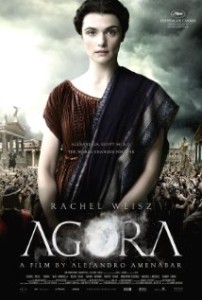
The Renaissance brought a rebellion against the knowledge-strangling restrictions imposed by Christian dogma and scholasticism. This was the time when Western Europe rediscovered Greek philosophy and free thinkers such as Galileo became emboldened to seek empirical knowledge. It was rediscovery of higher math, more than anything, which made the Renaissance possible. Interestingly, it was in art that the value of mathematical rediscoveries first became apparent, as painters reveled in a newfound ability to convey perspective.
In science Renaissance thinkers did not reject God (as far as we know; atheism was not a safe or respectable position to espouse), but they did reject the notion that individual received knowledge – whether from Church leaders or Aristotle – was immune to scrutiny. As the Age of Enlightenment progressed, rejection of the inviolability of scripture, then rejection of God and religion, became the norm. At the same time, many Christian prejudices remained unexamined. Astrology, psychic activity, magic, and many of the healing arts continued to be shunned by the new high priests. Empiricism was reaffirmed, but only in designated areas and only when dominated by men.
A physicist friend of mine once told me, as I tried to explain the aura to him, that the problem with adherents of metaphysics is that they try to use science in their explanations when they should avoid scientific language altogether, because science and metaphysics are two different things. He laid out his ideas in that imperious I’m-right-and-you’re-wrong voice (acquired already, at such a young age) that so terrifies women from pursuing the hard sciences. I tried to follow his advice for years, but I now believe that by putting a firewall between science and the occult what we have is bad science and bad magic, including flaws in the predictive sciences.
The study of numeric symbology, indispensable to the study of predictive signs, occasionally wanders into territory claimed by the high priests of math and science. Because we have been banished from mathematical frontiers for so long, we will doubtless make mistakes at times, which will be pounced upon with reprobation by those eager to see us fail. But the godless Christians of the modern era cannot defend their boundaries indefinitely against the heathen hordes. Math is Pagan. Numbers originate in the womb. Priestesses hold the keys to understanding the laws of the universe.

